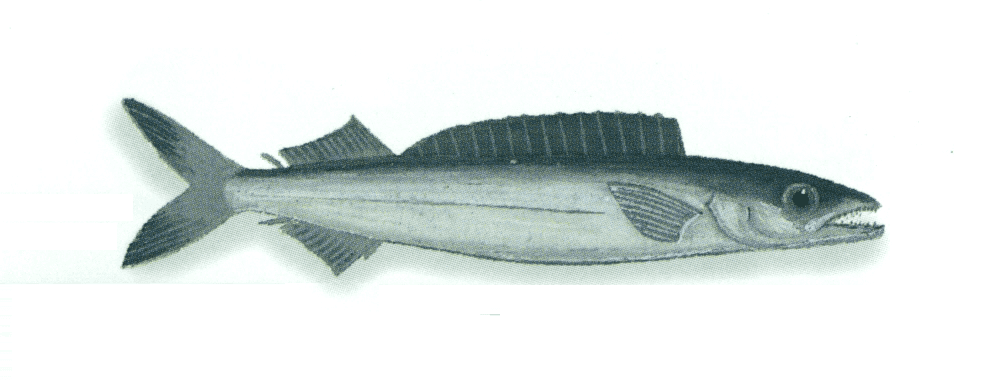Roudi Escolar

Species Details
Promethichthys Prometheus
Gempylidae
Perciformes
Reefs
3 - 6 lbs.
20" - 39"
Roudi Escolar (Promethichthys prometheus) Fish Description
A snake mackerel species, the Roudi Escolar is an important game fish and fish for consumption. It is also known as Coelho, Conejo, Roudi, or Bermuda Catfish.
The body of the Roudi Escolar is elongated and compressed. Its lower jaw extends farther in length than its upper jaw. It has long and strong teeth. The dorsal fin of Roudi Escolar has 17 to 19 spines and 17 to 20 rays. Its anal fin has 2 spines, and 15 to 17 rays. Roudi Escolar’s number of vertebrae ranges from 33 to 35.
The Roudi Escolar is generally colored copper brown to gray; it has blackish fins — some are yellow with black tips. Interestingly, its gill and oral cavities are also black.
Diet & Size
Roudi Escolar hunt for food at night. They move from deep waters to shallower waters in the evening to find its prey which consist of planktonic teleosts, cephalopods, and crustaceans. On average, Roudi Escolar measure up to 39 inches.
Interesting Facts About the Roudi Escolar
- Despite being considered as a popular food fish, Roudi Escolar are reported to contain the ciguatera toxin.
- The average lifespan of Roudi Escolar is 3 to 10 years old.
- The Roudi Escolar has fang-like teeth and spinescent gill rakers on its first arch with 1 to 3 cusps and several small spines.
- The Roudi Escolar is the only member of its genus.
- Roudi Escolar reproduce from April to September, the peak being in June to July.
- Female Roudi Escolar outnumber the males by almost 100%.
Roudi Escolar — Fishing Techniques
Roudi Escolar are best fished from rocky and sandy bottoms 1,300 to 2, 600 feet deep. The best bait to use for Roudi Escolar are barracuda and squid. Anglers can use large hooks when dropping that deep. Due to the Roudi Escolar’s big mouth, 14-16-size hooks with five hooks on the rigs should be used when fishing for this species.
Roudi Escolar are usually a product of bycatch when fishing for other deeper water fishes especially in Florida Keys. In the Canary Islands, the most common method of catching the Roudi Escolar is using deep hook-and-line and longline catches.
Many Roudi Escolar are taken off the Gulf of Mexico, but the highest catch rate for this species is from the Florida East Coast. Most of the catches are at the highest rates in May and November.
Habitat and Distribution
As a benthopelagic fish, Roudi Escolar like tropical and warm temperate waters as deep as 260 feet to 2,620 feet. They are mostly found at depths measuring 980 feet to 1,300 feet. This species can be found all over the globe particularly in saltwater areas.
Roudi Escolar are generally found in the Canary archipelago, in Newfoundland to South Brazil, and in all subtropical and tropical waters in the world except in the eastern Pacific. They are highly concentrated at depths measuring 1,300 to 2,300 feet. Roudi Escolar found in the Canary Islands exhibit no sexual dimorphism; instead, they are considered gonochoristic species.





